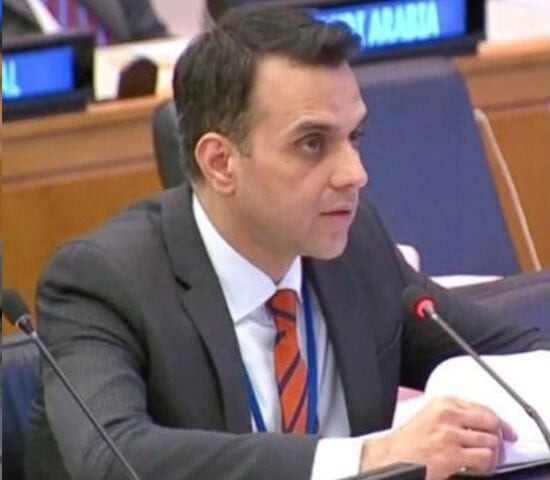Pakistan rejects fissile material ban
Amb Jadoon pointed out India was first to introduce nuclear weapons in the region and nuclearized the Indian Ocean

Pakistan has reaffirmed its opposition to the proposed treaty banning the production of fissile material used as fuel for nuclear weapons, asserting that States that do not need to produce enriched uranium after having already amassed several tons of it in excess are pushing for this discriminatory pact.
"A treaty which only results in a cut-off in the future production of fissile material would be a non-starter given that it would perpetuate asymmetries and will have no added value for nuclear disarmament," Ambassador Usman Iqbal Jadoon, deputy permanent representative to the UN, told the General Assembly's First Committee, which deals with disarmament and international security matters.
"The States, which do not need to produce fissile material after having already amassed several tonnes of fissile material in excess, are pushing for cost-free proposals such as quantitative capping of fissile material as 'the next logical step'," he said. In these diversionary tactics, he pointed out they are joined with fervour by the States who rely on others for extended deterrence and nuclear-weapon-sharing arrangements.
"If the proponents of the FMCT (fissile material cut-off treaty) are serious in addressing the issue of fissile material production, they should start by rejecting double standards and ceasing nuclear cooperation with a country in South Asiaobviously Indiathat continues to amass stockpiles outside safeguards and is now on the path of a major breakout in terms of fissile production," the Pakistani envoy said.
"Short of that, their calls for a moratorium or a cut-off treaty ring hollow," he added. In this regard, Ambassador Jadoon reiterated that FMCT's approach was "flawed" and that its time had long passed.
"The relentless weaponization of new and emerging capabilities and its integration and co-existence with the nuclear domain is further convoluting the security landscape," he said, adding that it would negatively impact the security of the States and exacerbate asymmetries.
Ambassador Jadoon pointed out that India was the first to introduce nuclear weapons in the region and nuclearized the Indian Ocean. The country refuses to commit to non-testing, threatens aggression against Pakistan, rejects implementation of resolutions on Jammu and Kashmir of the Security Council, where it wants to sit as a permanent member, and spurns dialogue on restraint measures.





















COMMENTS (2)
Comments are moderated and generally will be posted if they are on-topic and not abusive.
For more information, please see our Comments FAQ